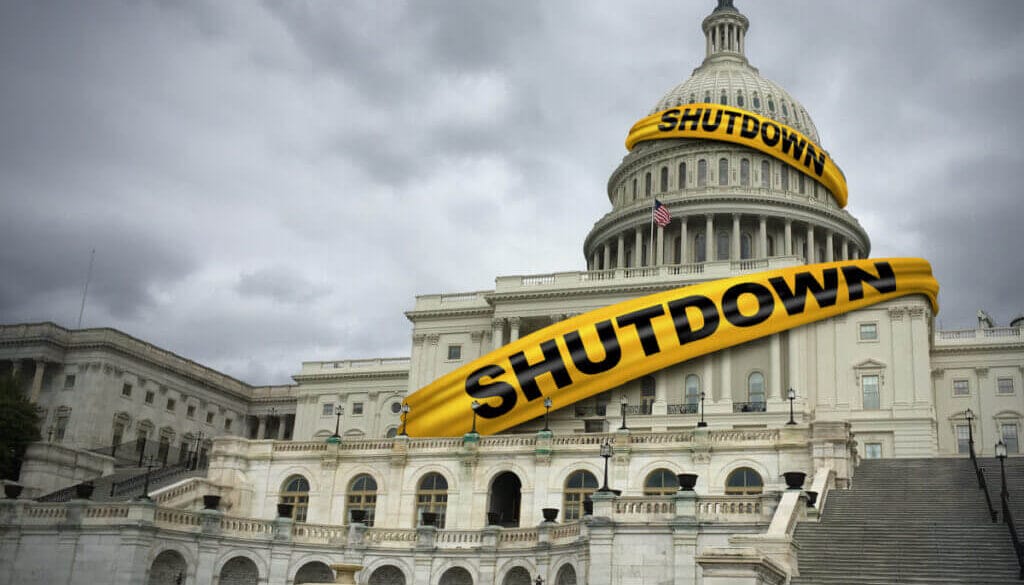How A Government Shutdown Can Affect A Small Business
How A Government Shutdown Can Affect A Small Business
Here in the United States government shutdowns have gotten more common. There is the threat of a shutdown almost every year. Changes in how budgeting is handled mean that almost every time a vote for funding the government comes up, there is a risk that there will be a government shutdown.
Consequently, shutdowns can have huge consequences for small businesses all across the country.
Here are some of the biggest things small businesses should be preparing for when a government shutdown is looming.
Ways Government Shutdowns Affect Small Businesses
There are a lot of factors at play when there is a government shutdown. Here is what you need to know.
People Are Less Able To Spend – Restaurants And Service Industries Particularly Affected
During a government shutdown government services stop working and government workers go without their paychecks. Most workers are eligible for backpay when a government spending plan is approved, but they’re living on credit and savings in the meantime.
That means that consumers have less money to spend, and spending on non-essential goods and services tends to decrease. Restaurants, hotels, and other service businesses are likely to notice fewer patrons during any shutdown.
No Small Business Loans
Small business loans are a critical part of opening and sometimes operating small businesses of all types. The problem is that the small business loan agency is on hold, and most of the employees are on furlough, whenever there is a government shutdown.
That means no loans are available, no matter how urgently small businesses need them.
Hiring Slowdowns
One of the challenges of a shutdown is that government-run aspects of the hiring process either shut down or are delayed. That includes the E-Verify program, which allows employers to check if potential employees are eligible to work in the United States.
Without E-Verify, many employers are unable to hire because of State requirements. Or, if they do hire, it has to be on a probationary basis until the E-Verify program is available again.
Put together, that makes it almost impossible for small businesses to hire if someone leaves the business, takes paternity leave, or the business needs to expand. It also means that fewer people looking for work are getting hired, which further depresses discretionary spending.
Loss Of IRS Services
The IRS still functions on a limited basis during government shutdowns, but a lot of their courtesy services for businesses and individuals are not available.
The IRS will still require small businesses to file their taxes on time, pay any bills, and otherwise meet their legal obligations, but the department is unable to process returns or answer questions.
This is a particularly sticky problem if the shutdown happens to occur during tax season, or during the limited windows where a business can apply for a new tax status.
Even if the shutdown is timed so that returns aren’t delayed and businesses’ filing decisions are not impacted, not being able to ask the IRS questions about your taxes can increase the risk that your small business won’t file its taxes appropriately.
Tax issues are a common factor that can force otherwise successful small businesses under, so not being able to work with the IRS to make sure you’re meeting your business’s legal obligations is a huge threat.
Government Shutdowns: Bad For Small Business
Politicians talk a big game about small businesses being the lifeblood of the US economy, but when it comes to fighting over government budgets, they seem to forget how bad a shutdown is for everyday Americans and American business.
If you are a small business owner or rely on small businesses in your community, there is something you can do. Contacting your congresspeople, by email or over the phone, is a good place to start. Tell them how important it is to you for them to find a working budget before a government shutdown.
Contacting congresspeople is particularly important if you are represented by a congress member who is opposed to current budgetary proposals. Constituent contacts can help pressure them to come to the negotiation table and make a deal before the American people have to pay for their procrastination.




